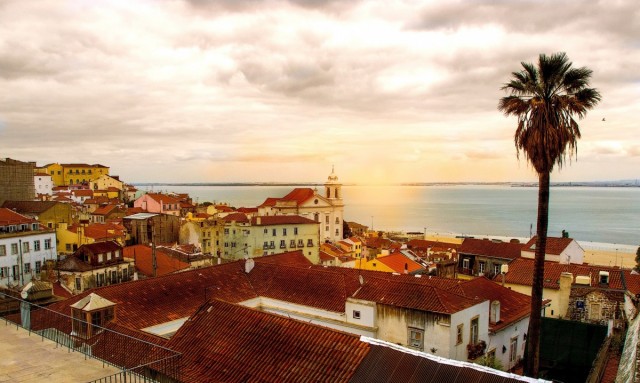
April is here and it’s time to pay the Municipal Property Tax (Imposto Municipal sobre Imóveis or IMI). By now, most of the taxpayers in Portugal should have been billed to their home. In many cases, however, it is possible to claim exemption from paying the IMI. How? Let’s find out.
The IMI is a municipal tax that is calculated based on the Taxable Patrimonial Value (Valor Patrimonial Tributário or VPT) of buildings (rustic, urban or mixed) located in Portugal. The tax came into force in 2003 and underwent some changes in 2017 with the creation of an additional tax to IMI (Adicional ao IMI or AIMI).
Payment must be made in April. If the amount to be paid is 250 euro or less, the tax must be paid in full by the end of the following month. If the outstanding amount is between 250 and 500 euro, payment can be made in two instalments, in April and November. If the value exceeds 500 euro, the payment can be made in three stages, in the months of April, July and November.
What are the exemptions provided for by law?
The experts at Ernst & Young (EY) have prepared a list of all the situations in which one may be exempt from paying the IMI.
Urban buildings used as residences
Exempt from the tax are urban buildings or parts of buildings used for housing and which are constructed, extended, improved or paid for, intended to be the taxpayer's own permanent residence or home, with a family income of no more than 153,300 euro and a VPT of no more than 125,000 euro, reads the Statute of Fiscal Benefits (Estatuto dos Benefícios Fiscais or EBF).
Also exempted are buildings or parts of buildings that are rebuilt, enlarged, improved or purchased, if it is their first transfer, and they are intended for rental as residences, with the exemption period starting at the same time as the first rental contract.
Low-income homes
The exemption applies to rustic buildings and to urban buildings or parts of buildings intended for the taxpayer’s own permanent dwelling or that of his household when the taxpayer has an annual income of less than 15,295 euro. However, the exemption is only granted for properties with a value of less than 66,500 euro (10 times the annual value of the social support index - Indexante dos Apoios Sociais).
Urban regeneration projects
Urban buildings or self-contained projects completed more than 30 years ago or located in areas of urban regeneration can benefit from the following incentives:
- Exemption from the tax for a period of three years from the year of completion of the refurbishment work, which may be renewed, at the request of the owner, for a further five years in the case of buildings intended for rental for permanent housing or for the taxpayer’s own permanent residence.
- Exemption from tax on the transfer of onerous real estate in the case of the purchase of real estate intended for renovation work, provided that the purchaser commences the respective work within a maximum of three years from the date of purchase.
- Exemption on the transfer of onerous real estate when it is the first transfer, subsequent to the refurbishment work, which is intended to be rented as permanent housing or when it is located in an area of urban regeneration and is used as their own permanent home, according to the EBF.
Investment Support Scheme
In accordance with the Investment Support Scheme (Regime Fiscal de Apoio ao Investimento or RFAI), companies which make investments that are considered relevant can benefit from an exemption or reduction of the IMI for up to 10 years for the buildings they own.
Historical shops
Buildings or parts of buildings intended to be historic shops, recognised by the municipality as establishments of local historical, cultural or social interest and which form part of the national inventory of establishments and entities of local historical, cultural or social interest, in line with the EBF.
IMI exemption for tourism in the hands of municipalities
“Real estate assets belonging to tourism businesses are exempt from IMI for a period of seven years. This exemption must be recognised by the financial manager of the area by submitting a correctly completed application, which must be submitted by the taxable persons within 60 days of the date of publication of the order awarding the tourist licence (utilidade turística),” reads the EBF.
However, changes to this exemption may occur. According to the newspaper Público, the government wants to give municipalities the power to decide whether or not to maintain this tax benefit. The bill was introduced in the Portuguese parliament on 29th March and has not yet been adopted. If the change is given the green light, areas such as hotels, spas and tourist accommodation that have been granted "tourist use" status by the Portuguese government will no longer benefit from the IMI exemption from 2019.